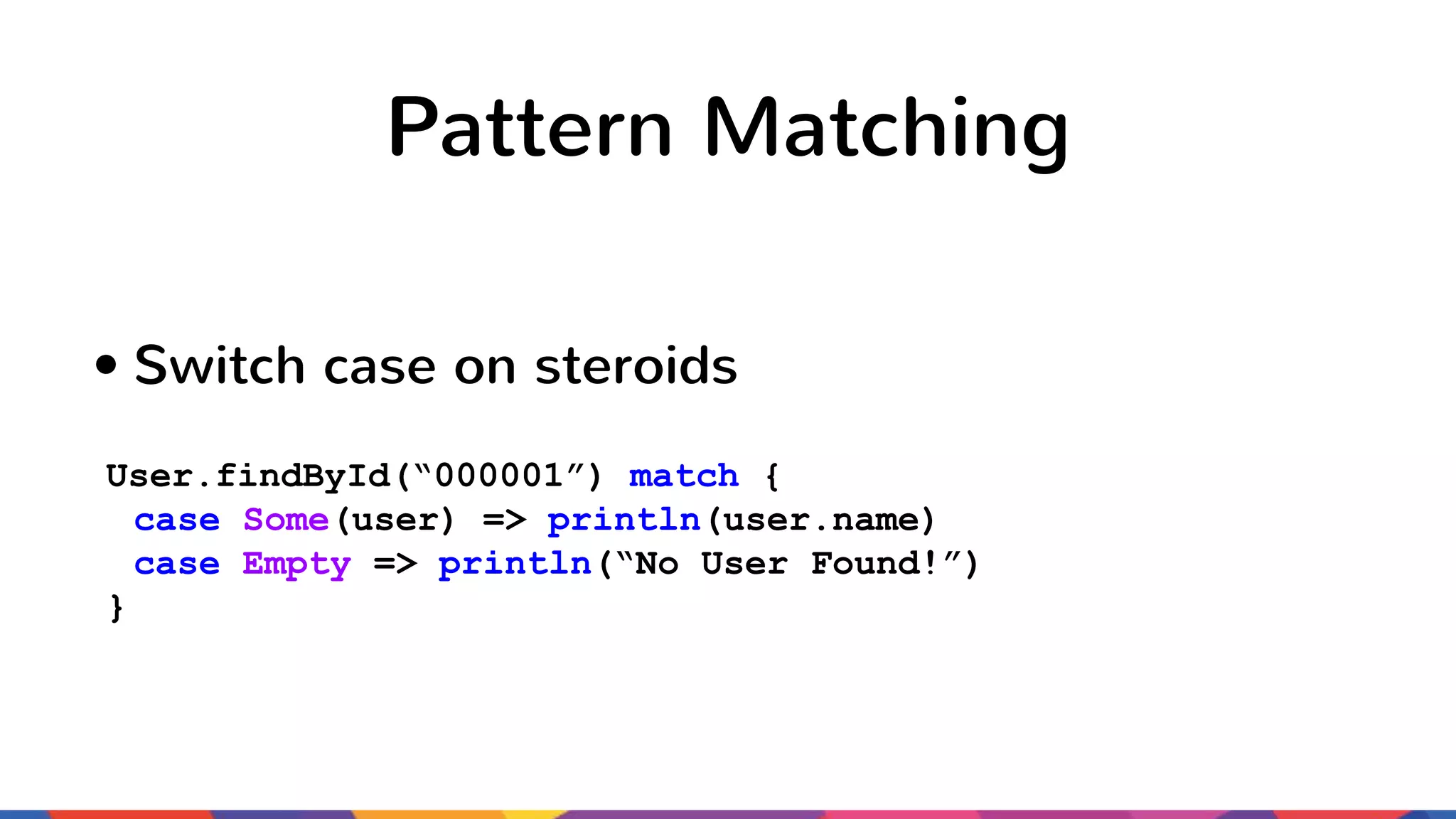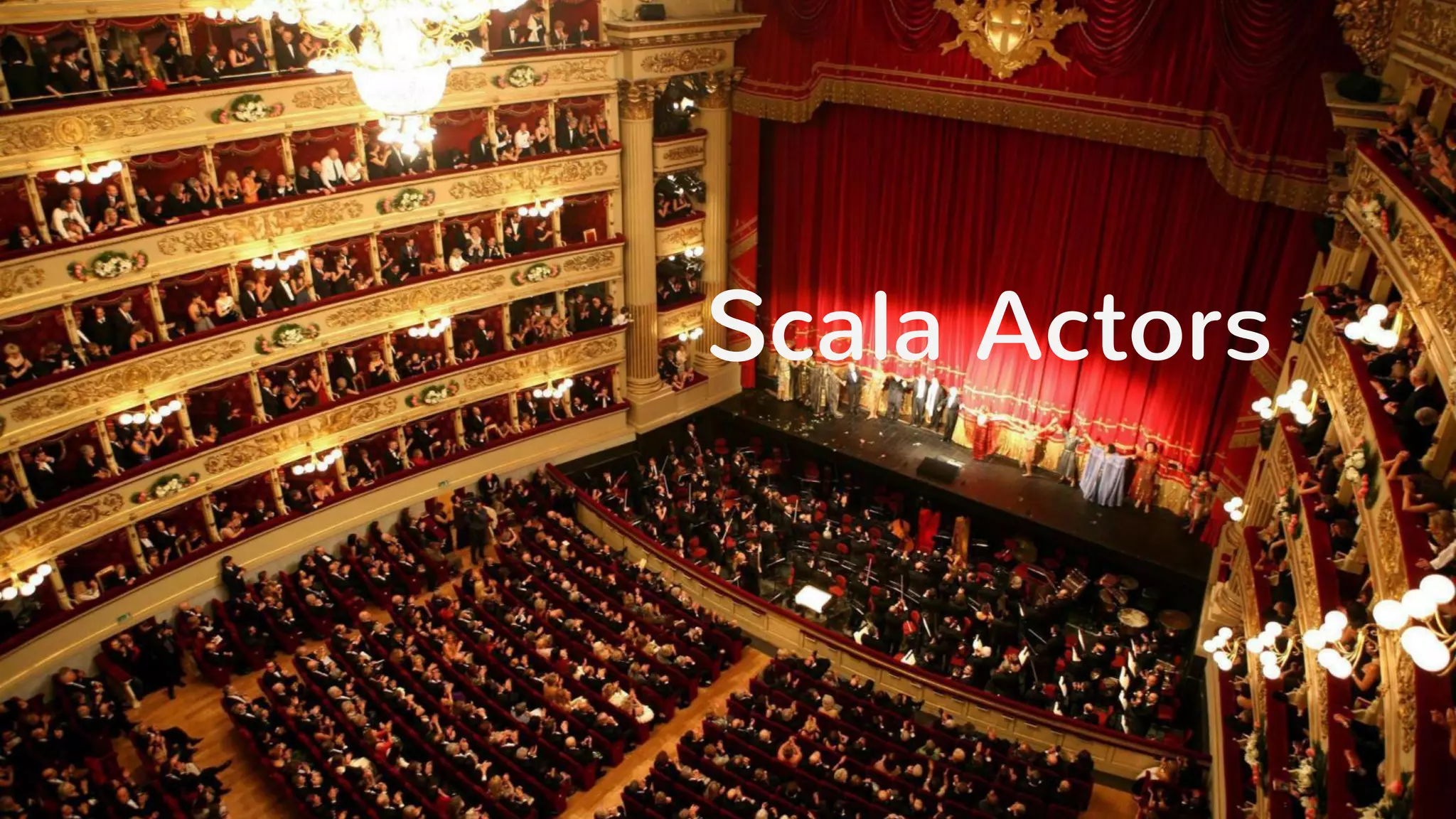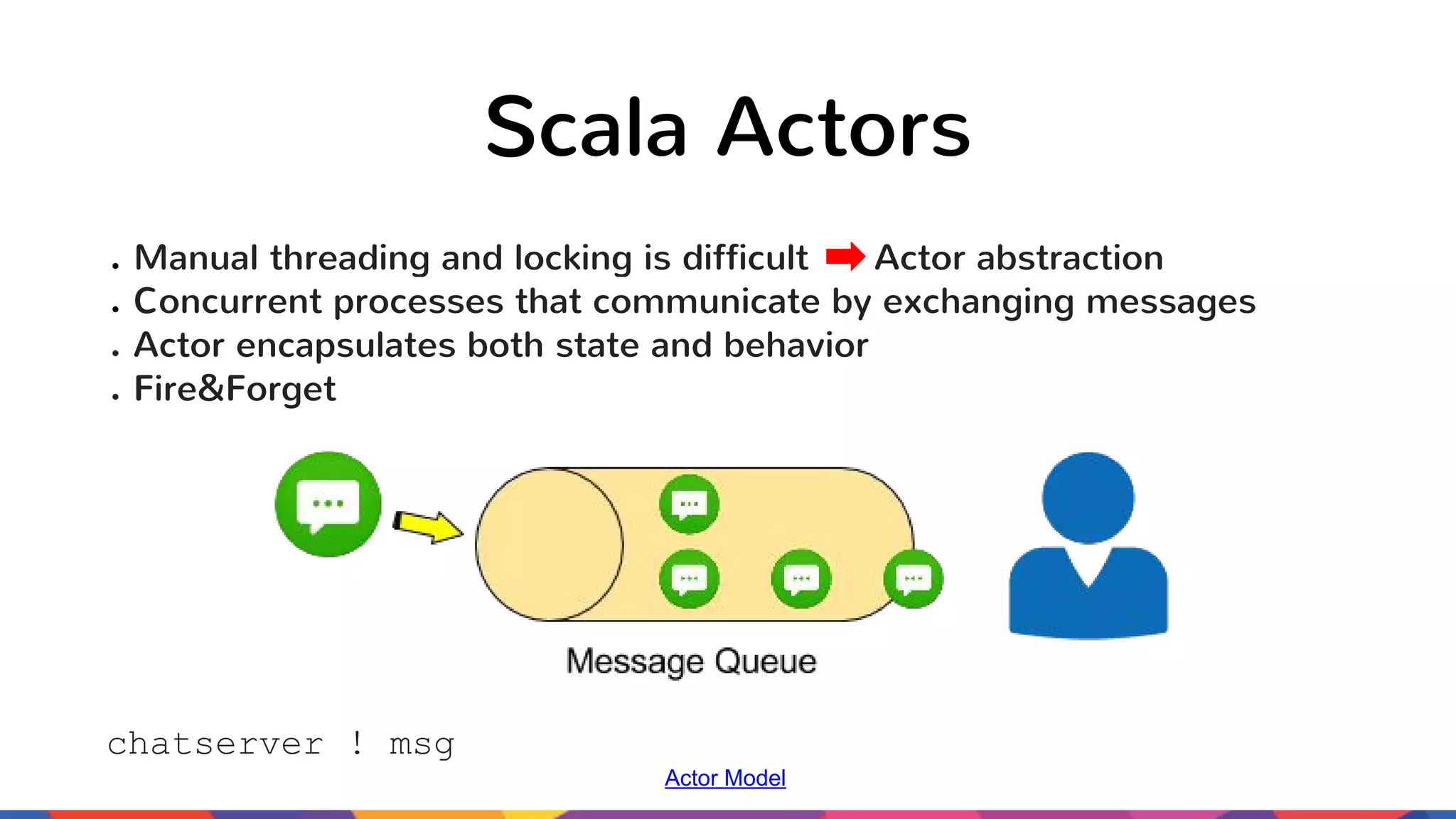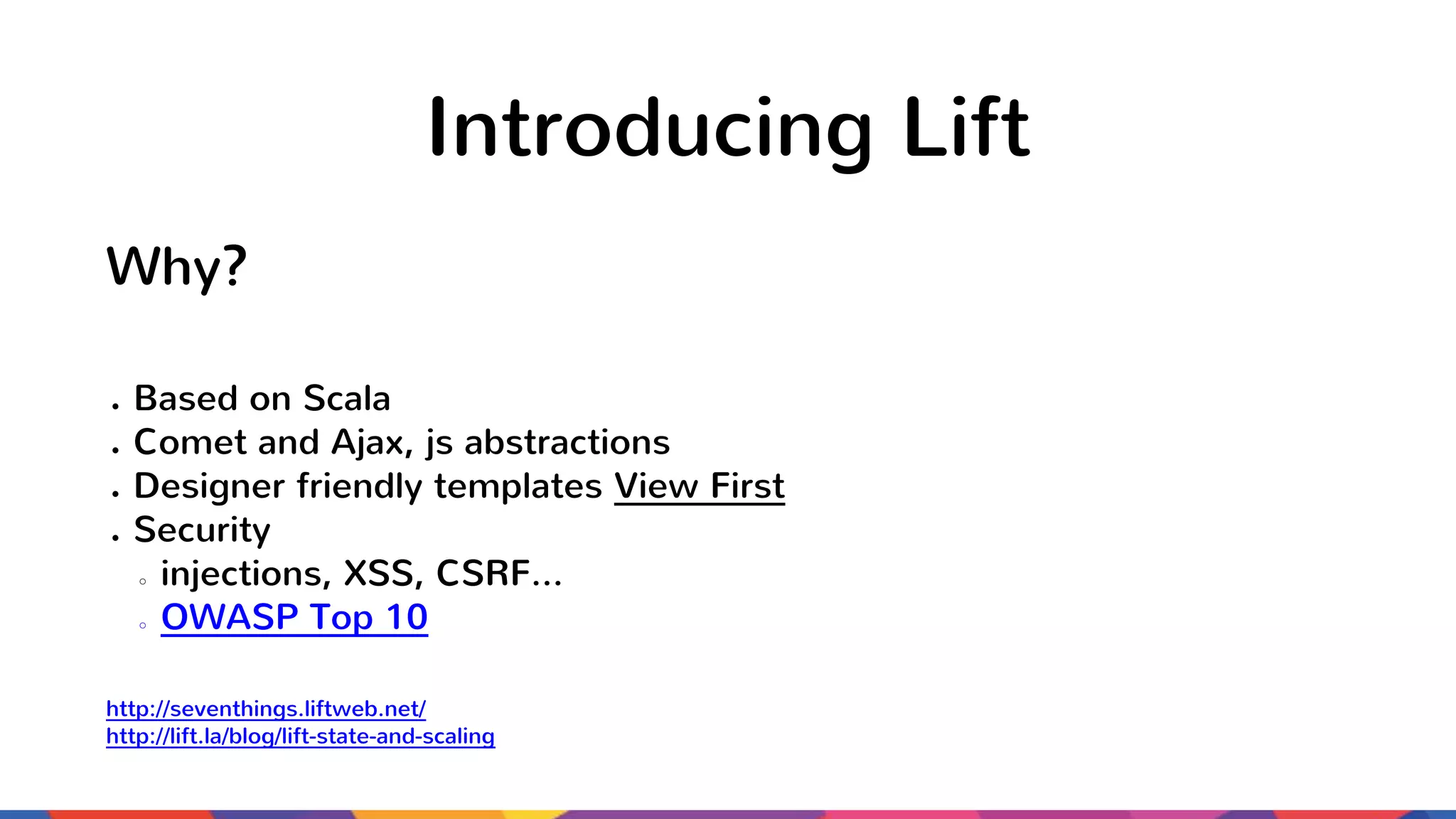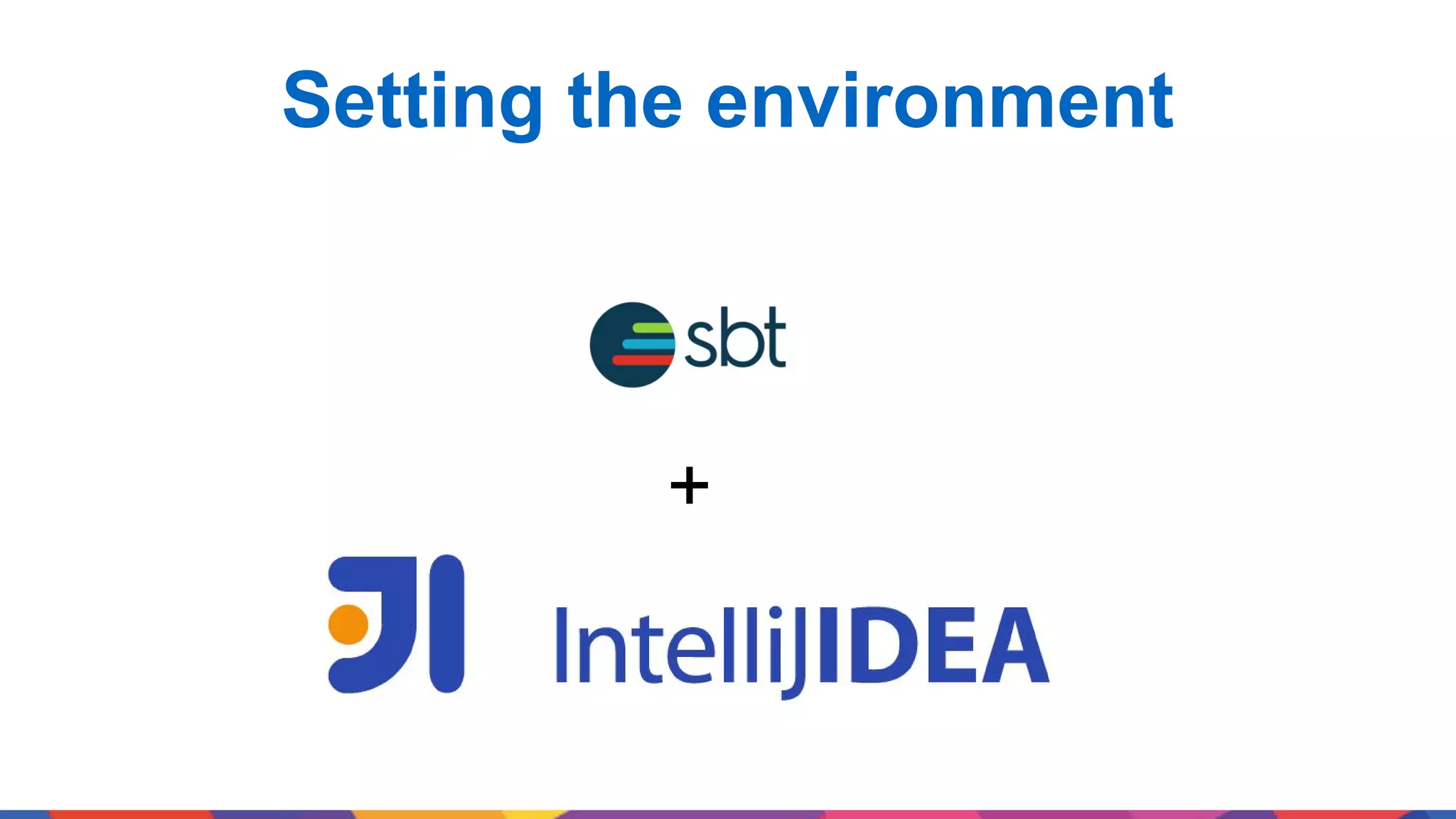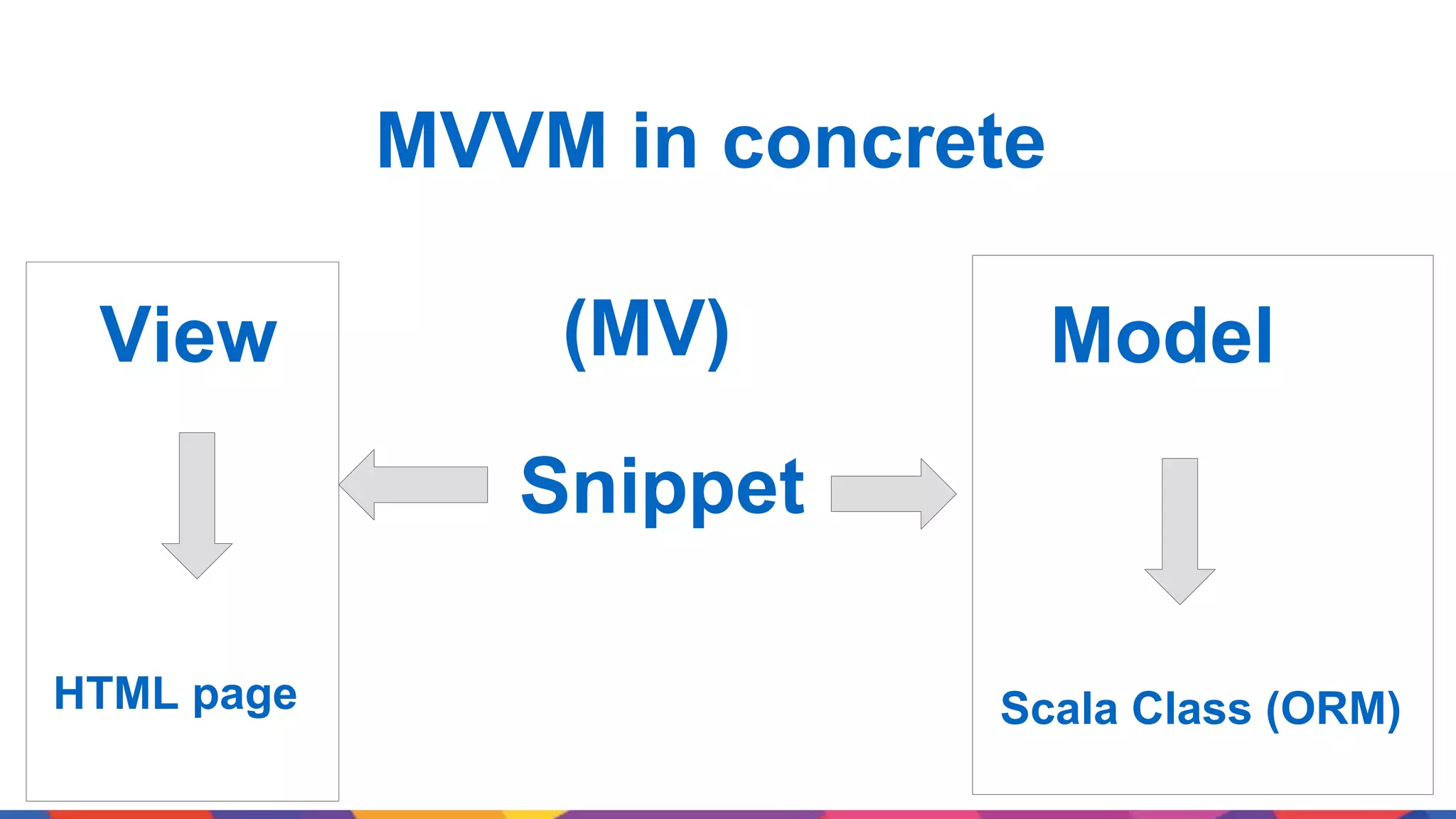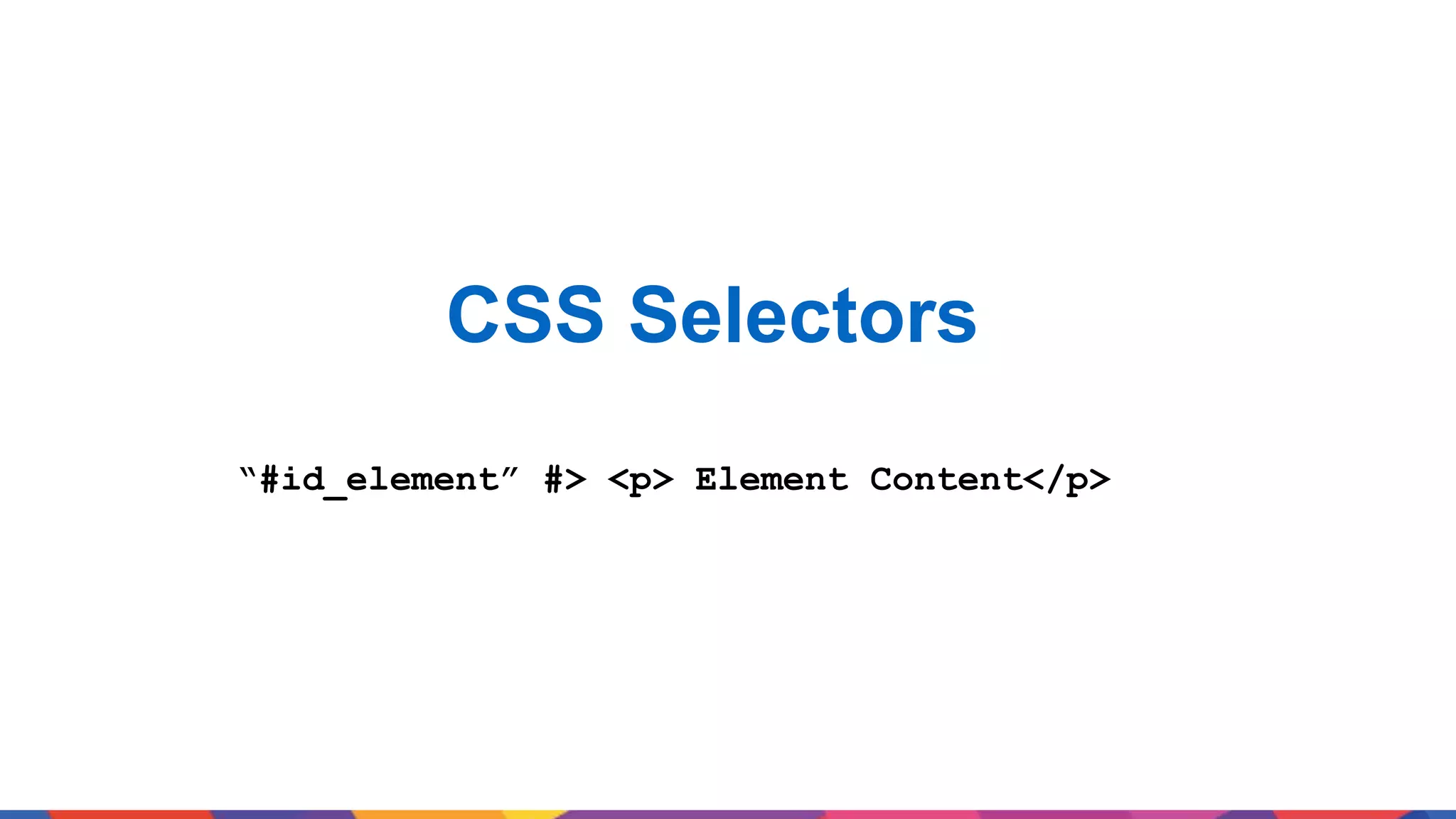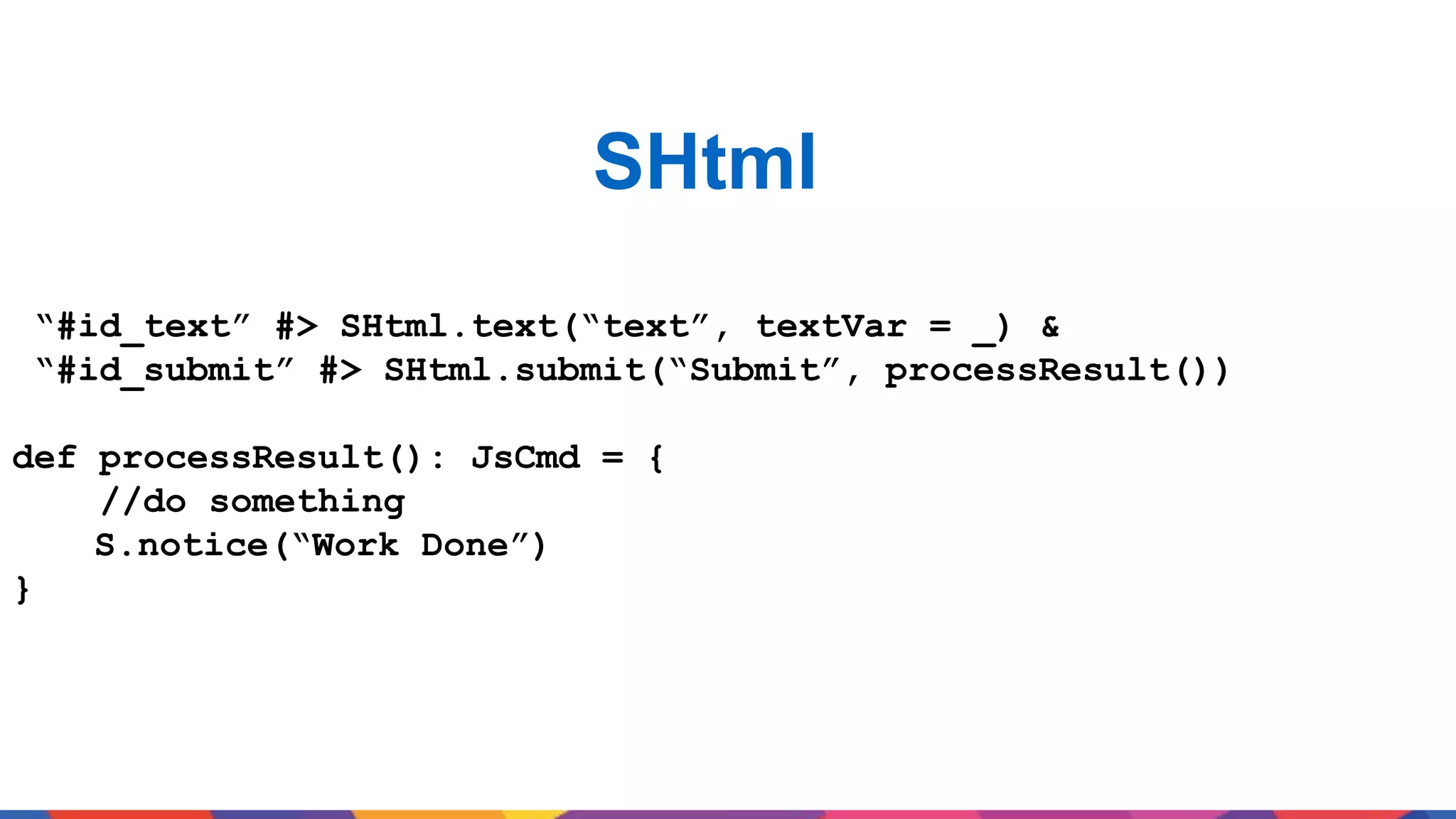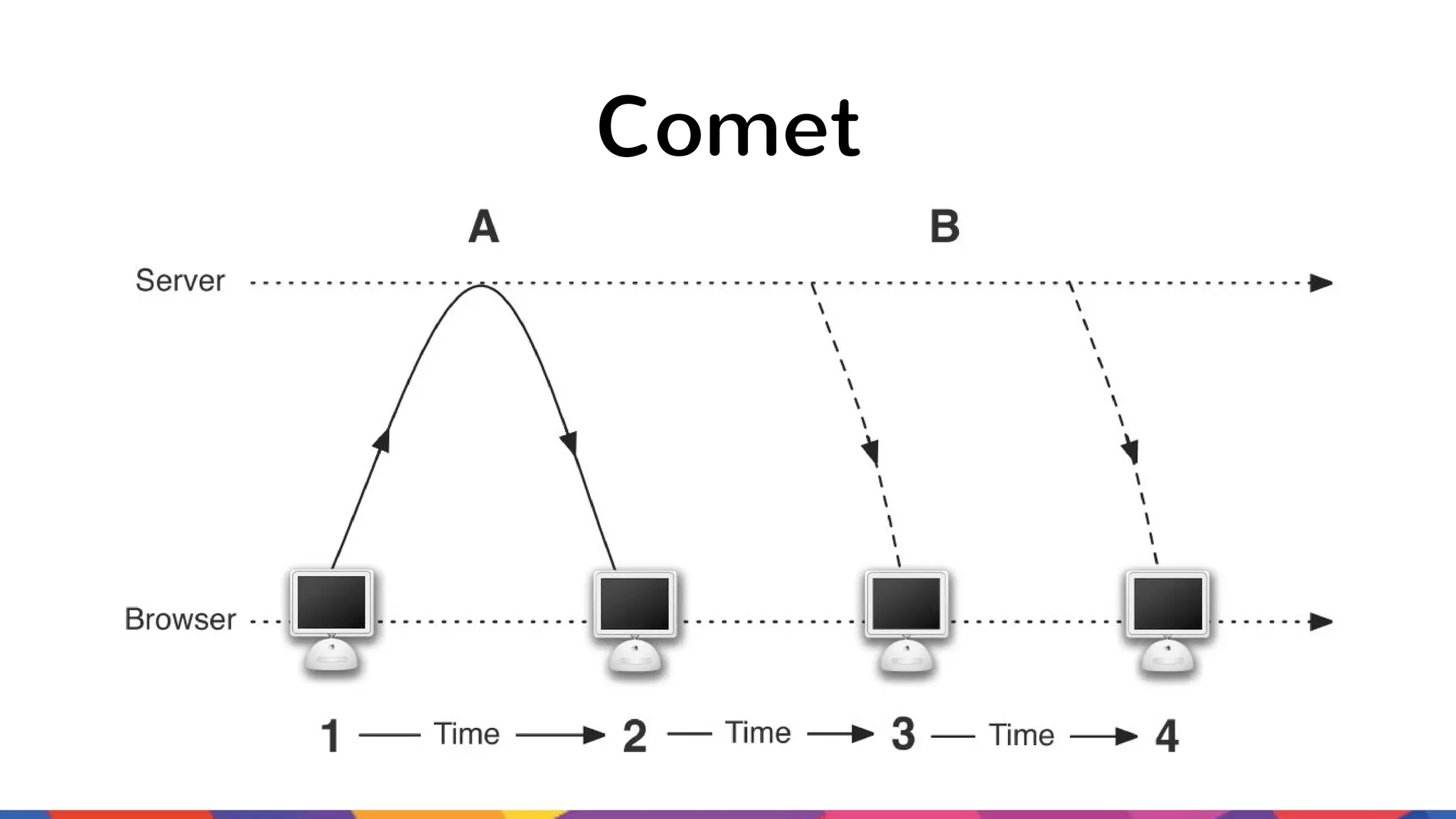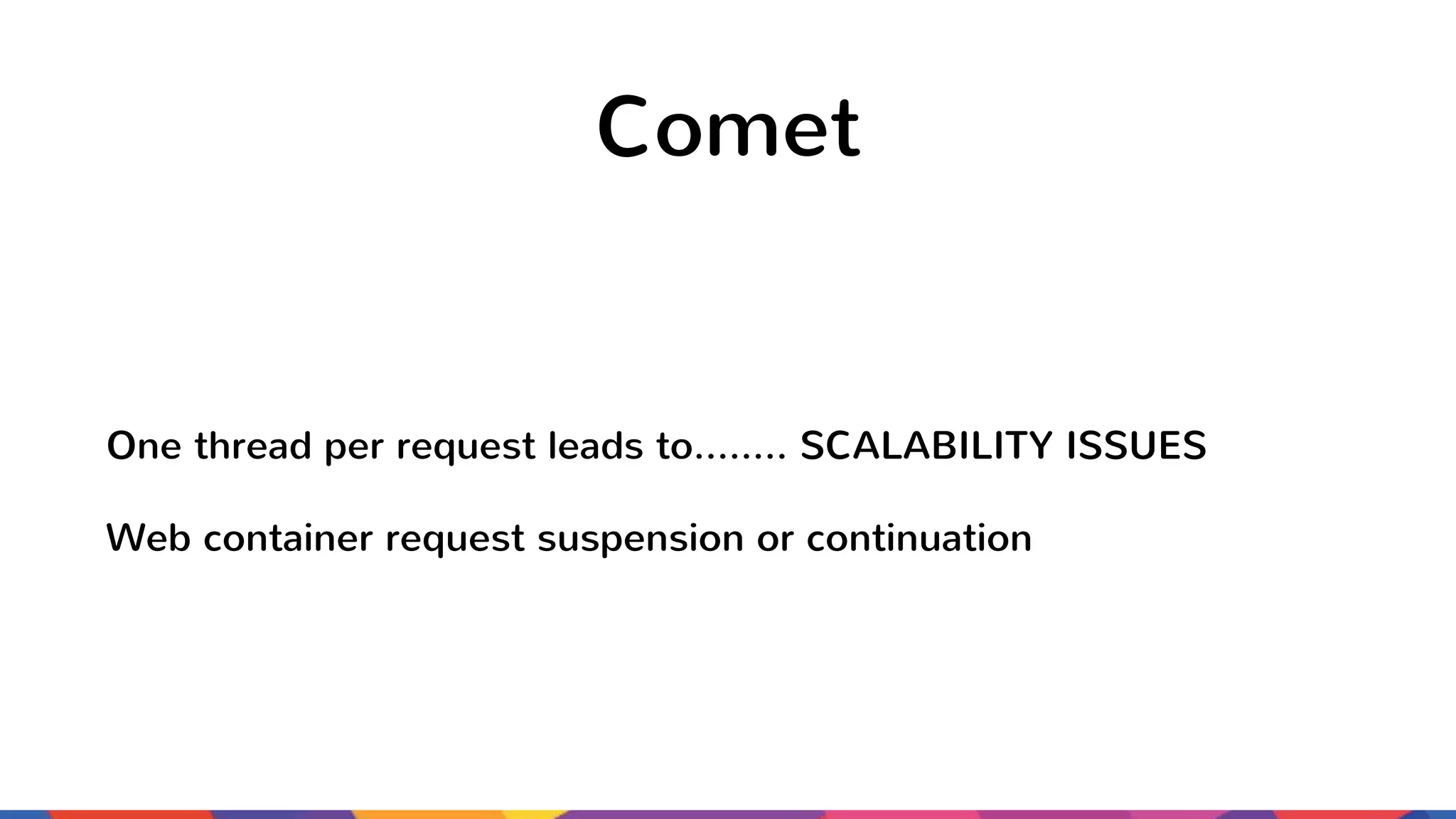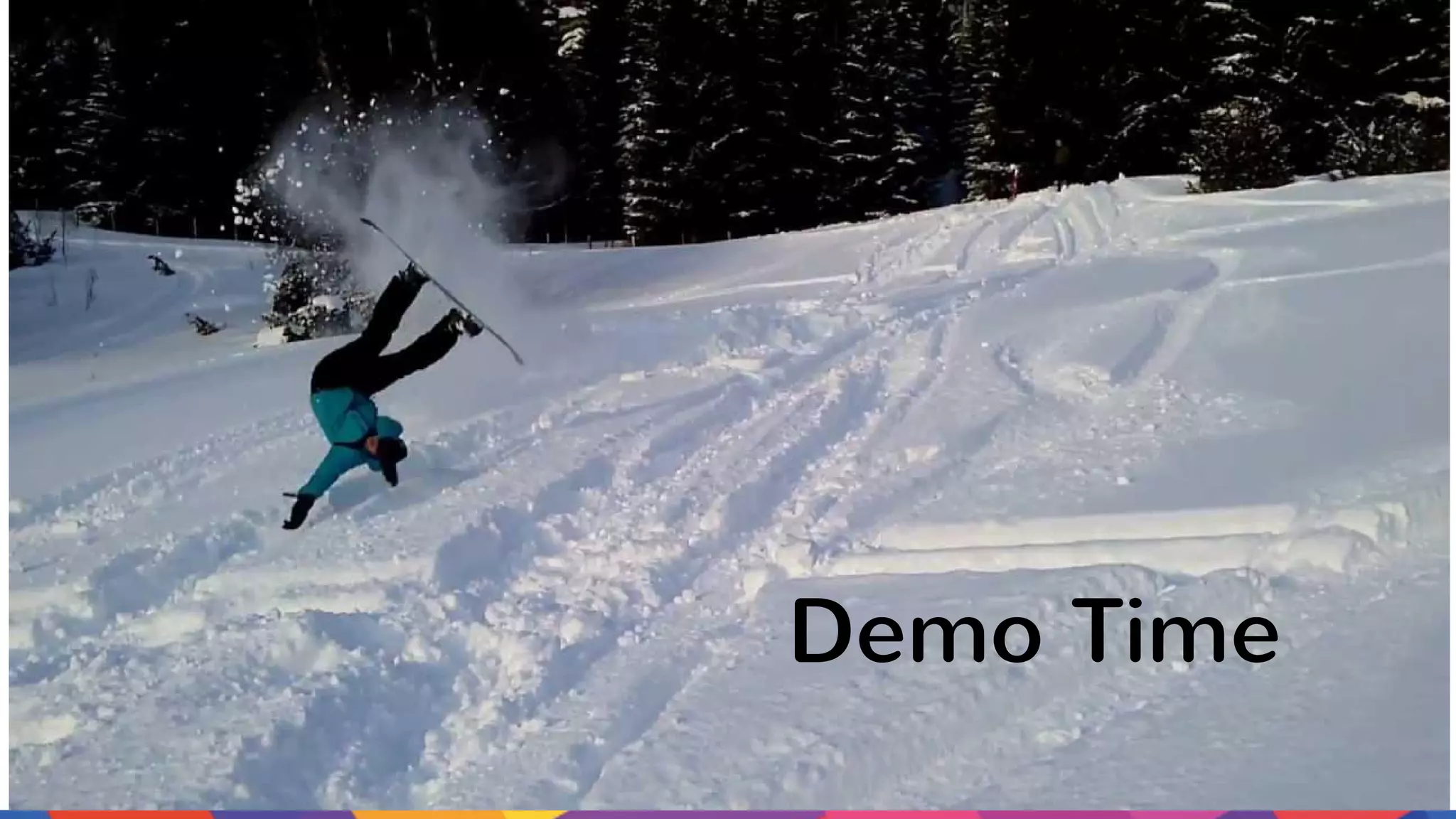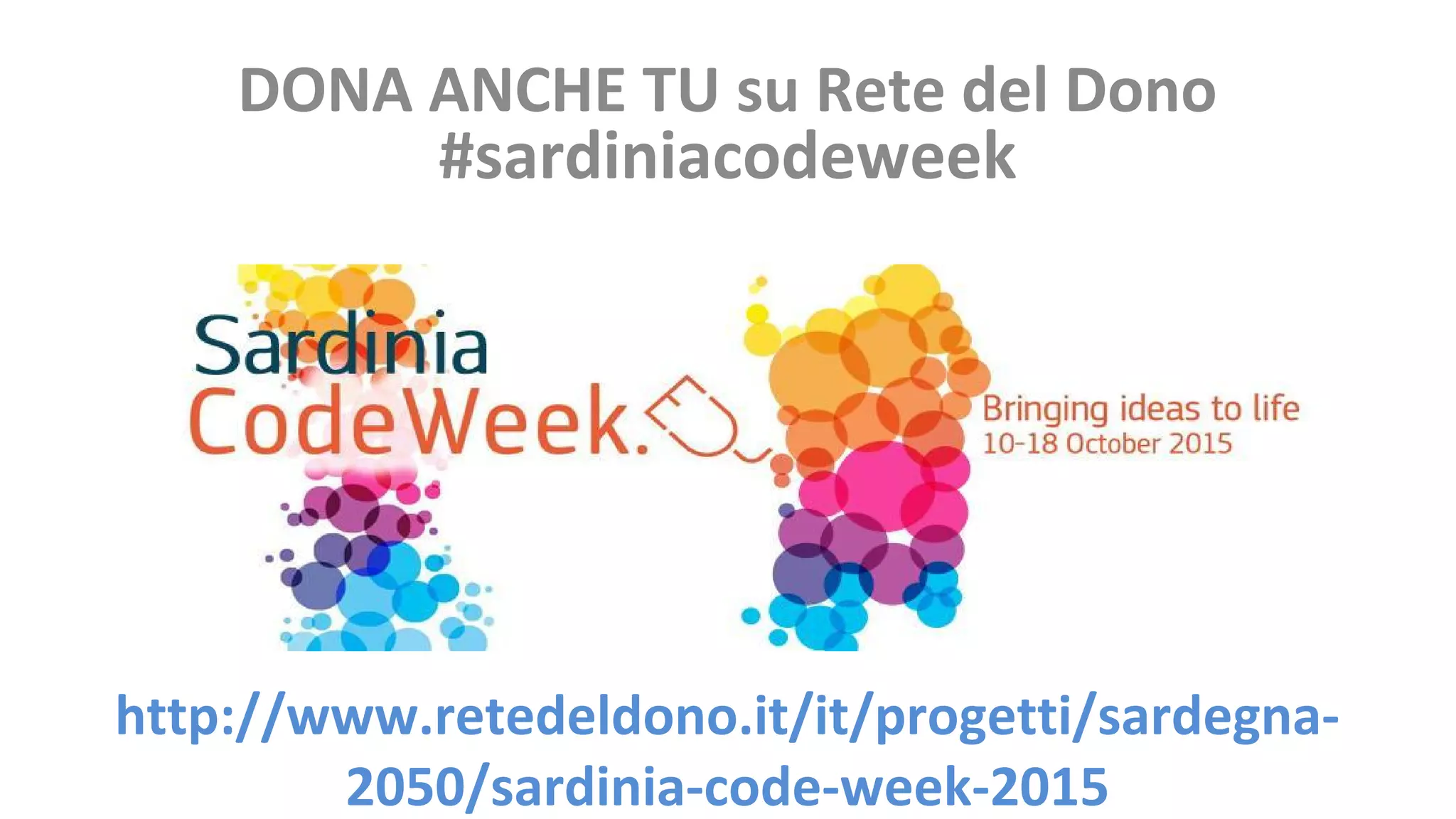The document discusses reactive web applications using Scala and Liftweb. It summarizes key traits of reactive applications like being responsive, event-driven, resilient and scalable. It then discusses how Scala enables functional programming with features like immutability, type inference and first class functions. Liftweb is introduced as a web framework based on Scala that uses comet techniques and actors for scalable server push functionality in building reactive applications.
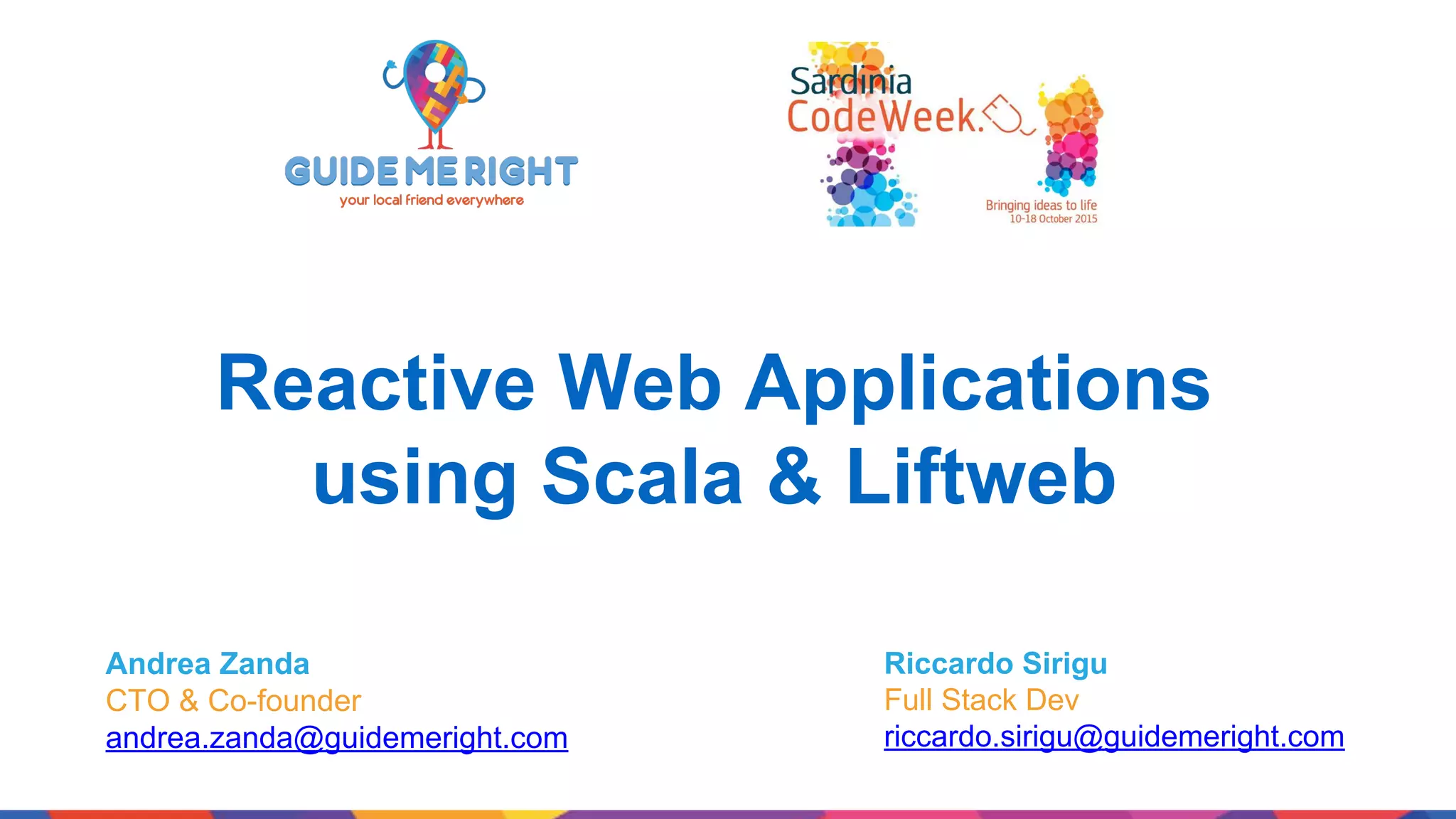
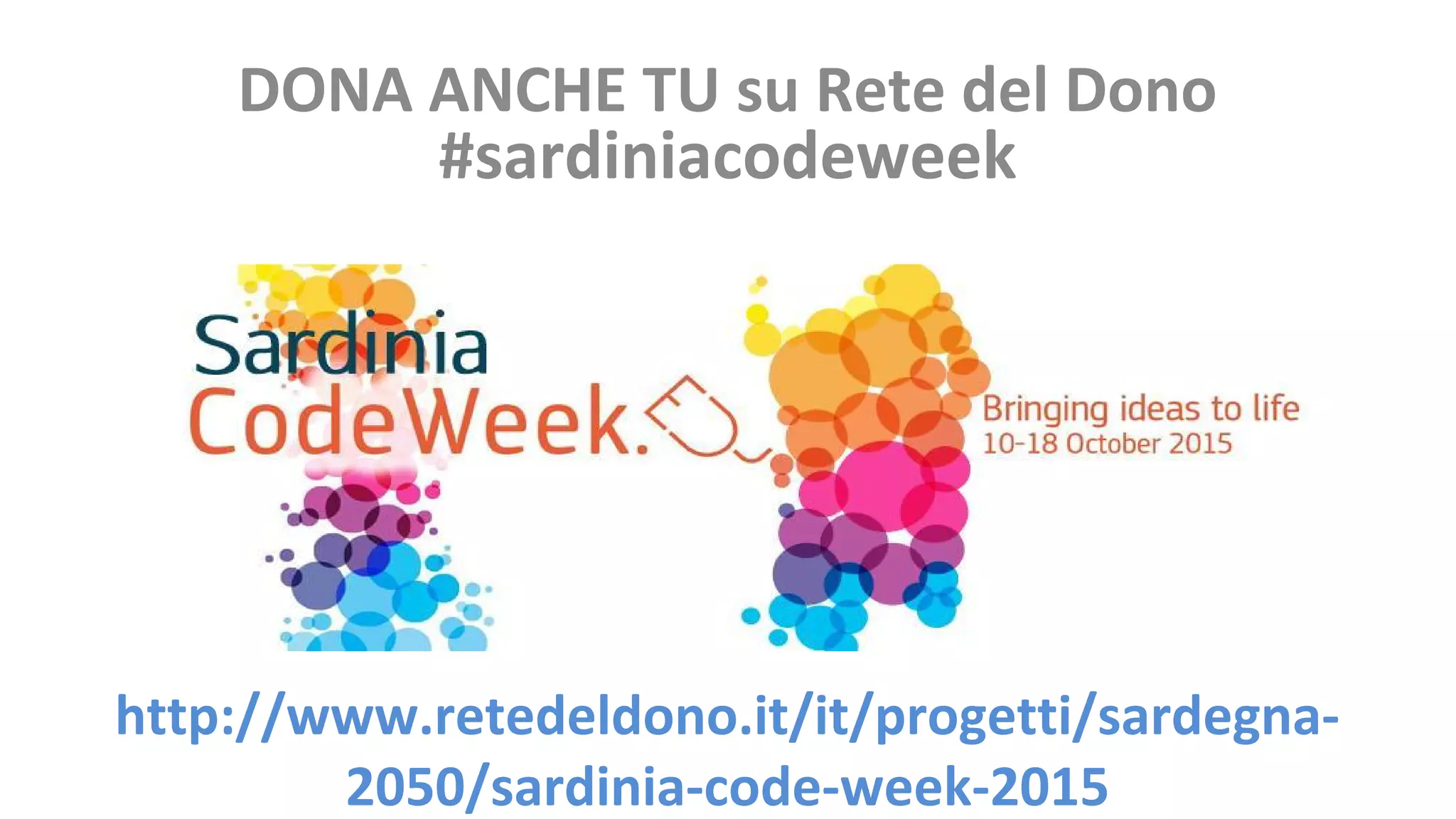

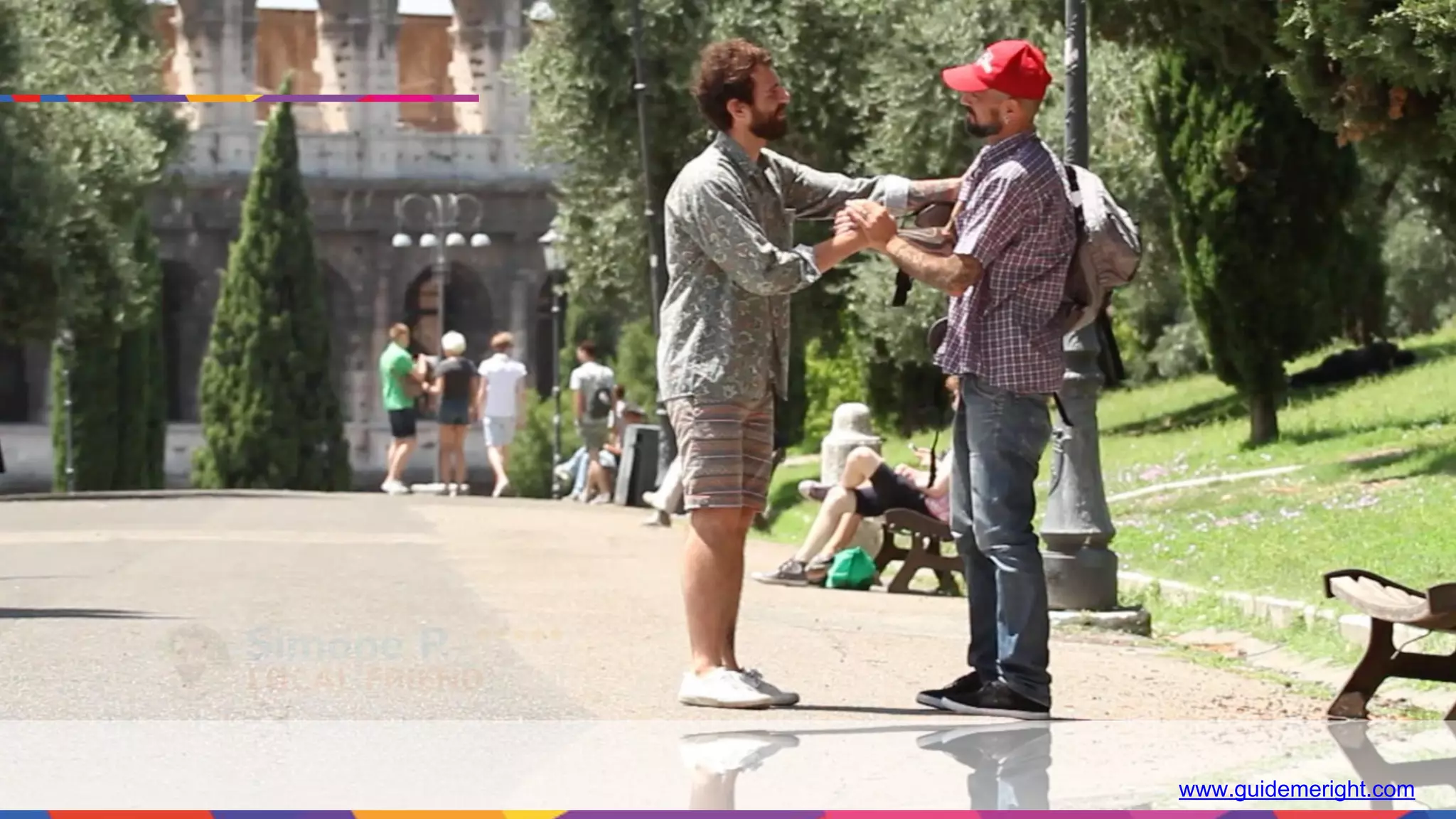

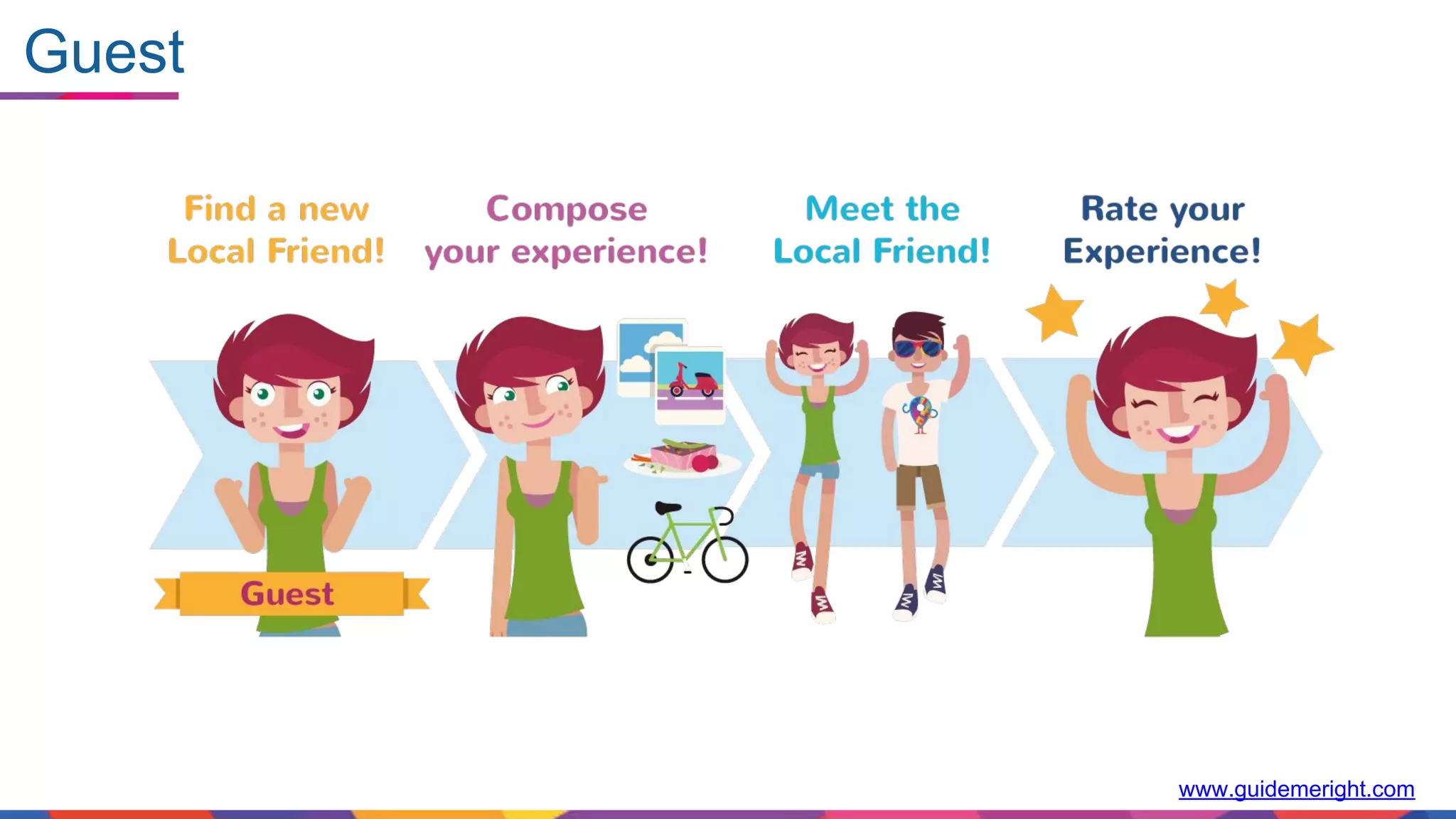
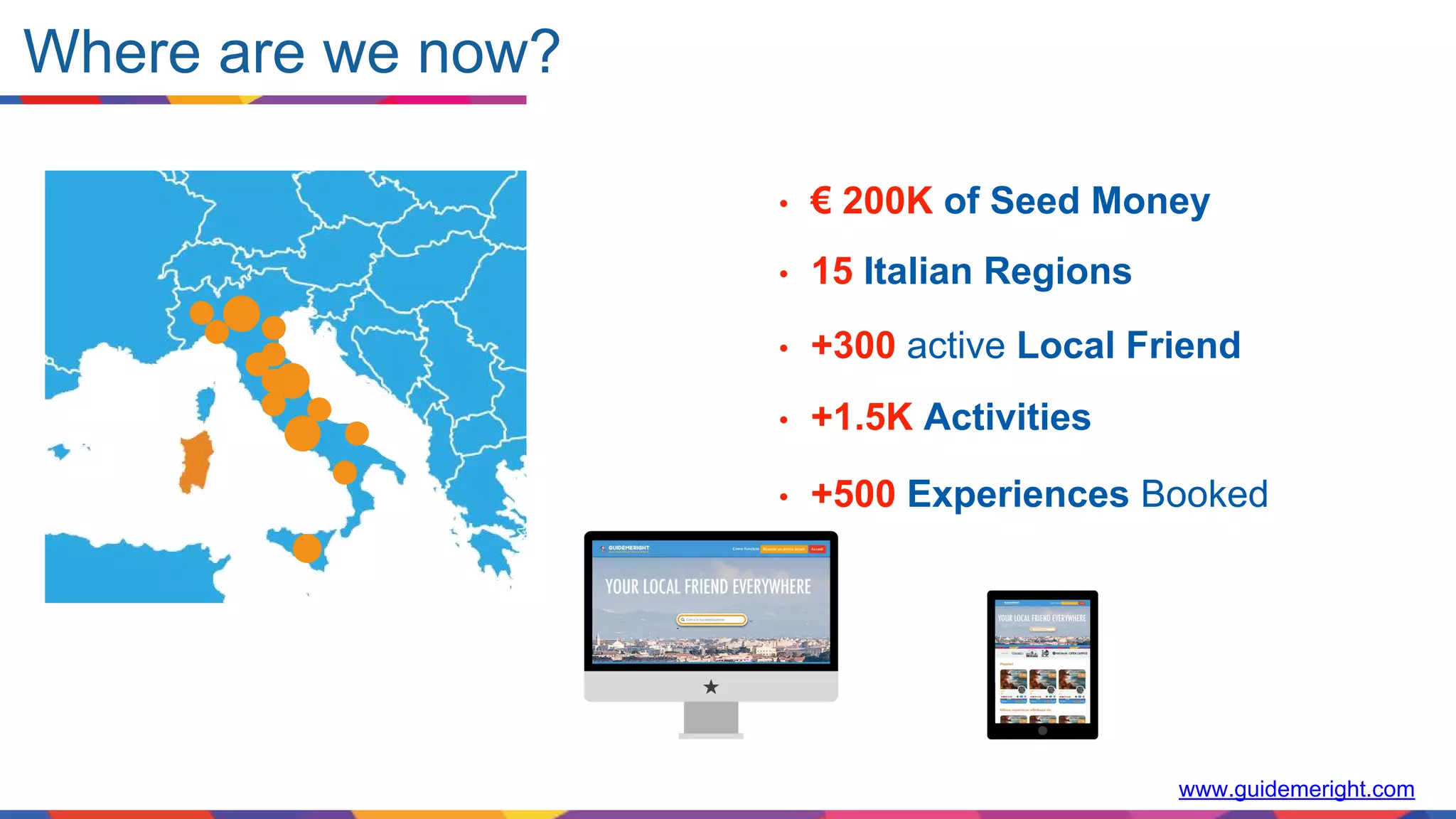
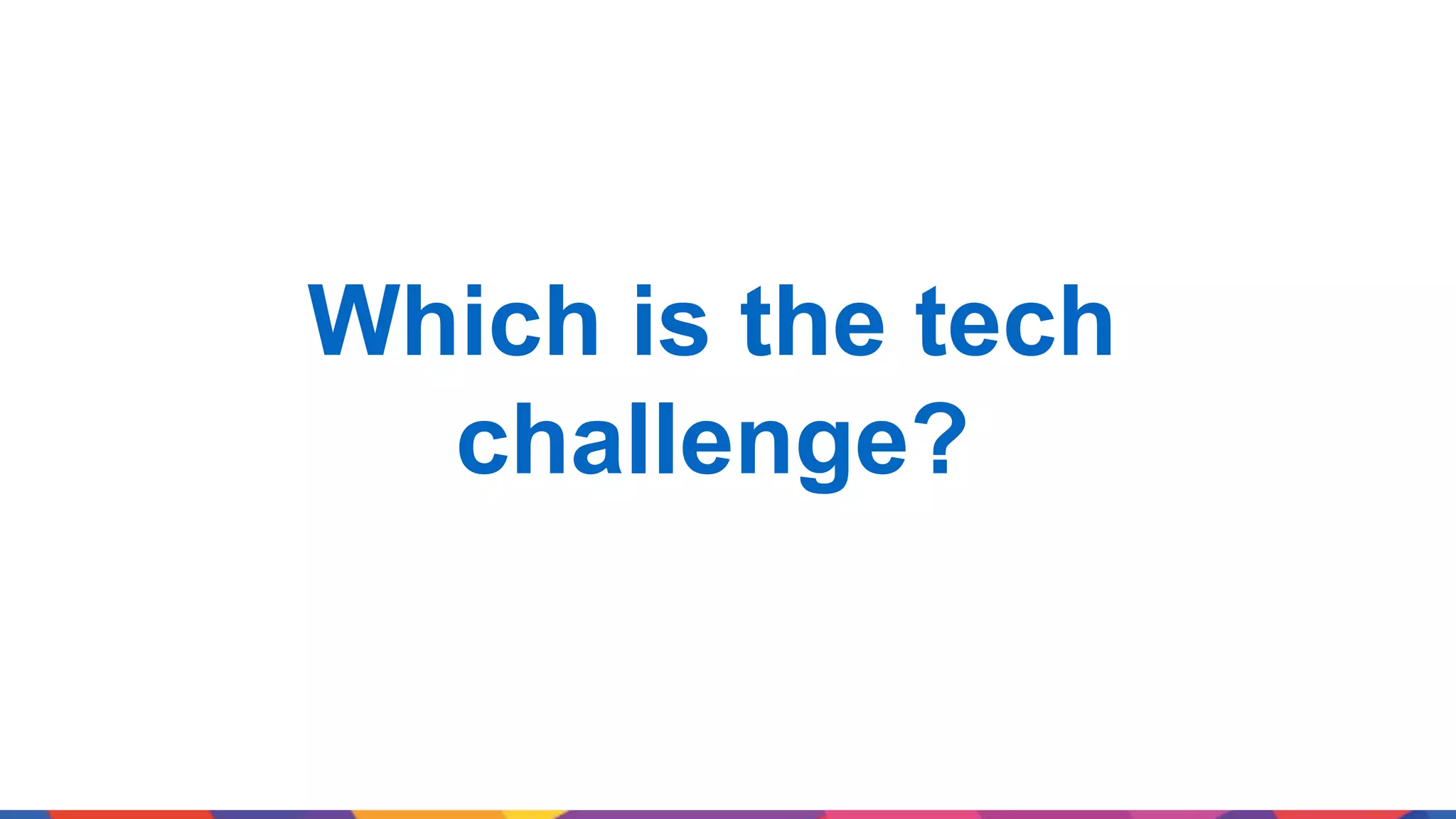
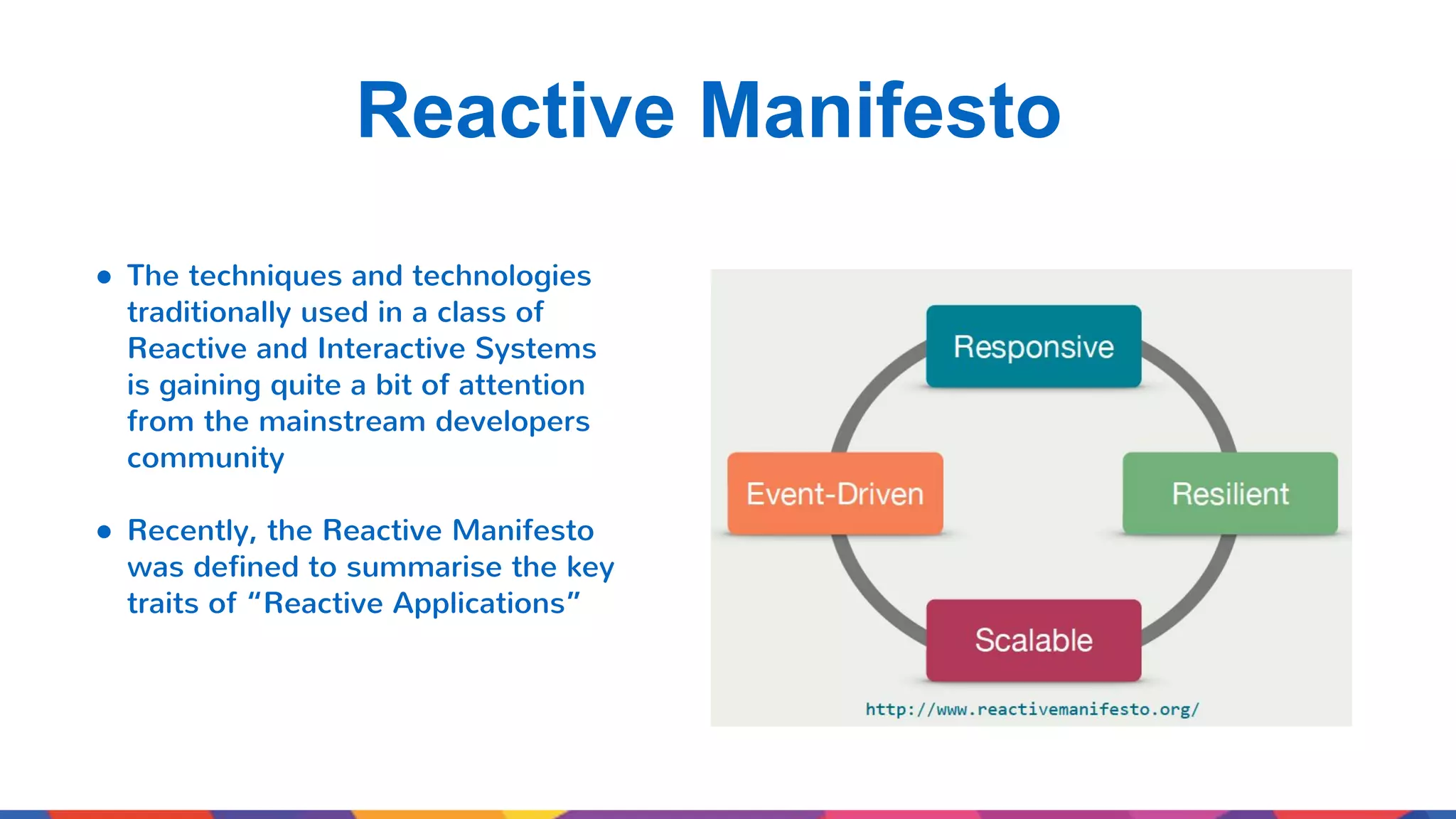
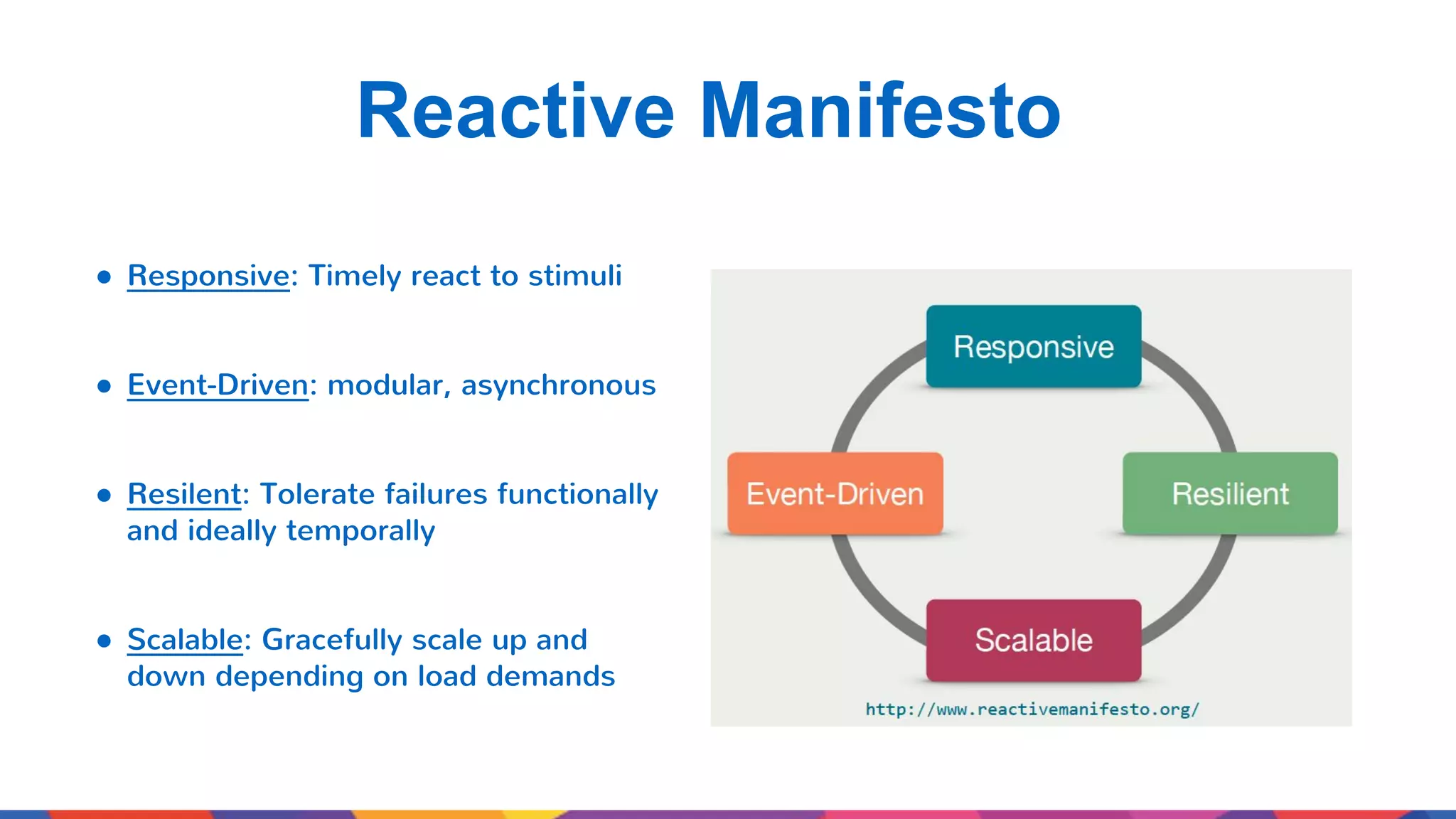
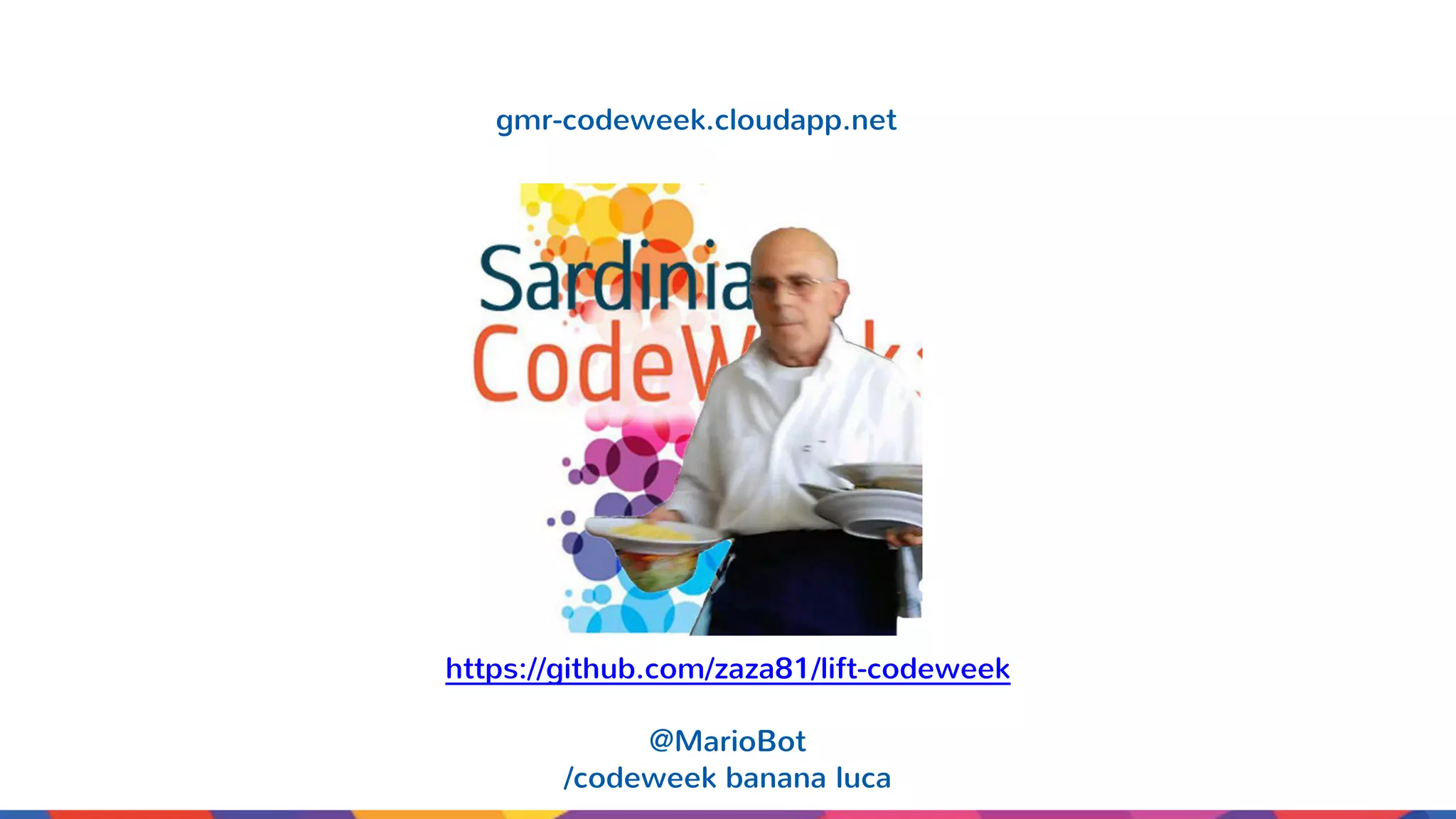


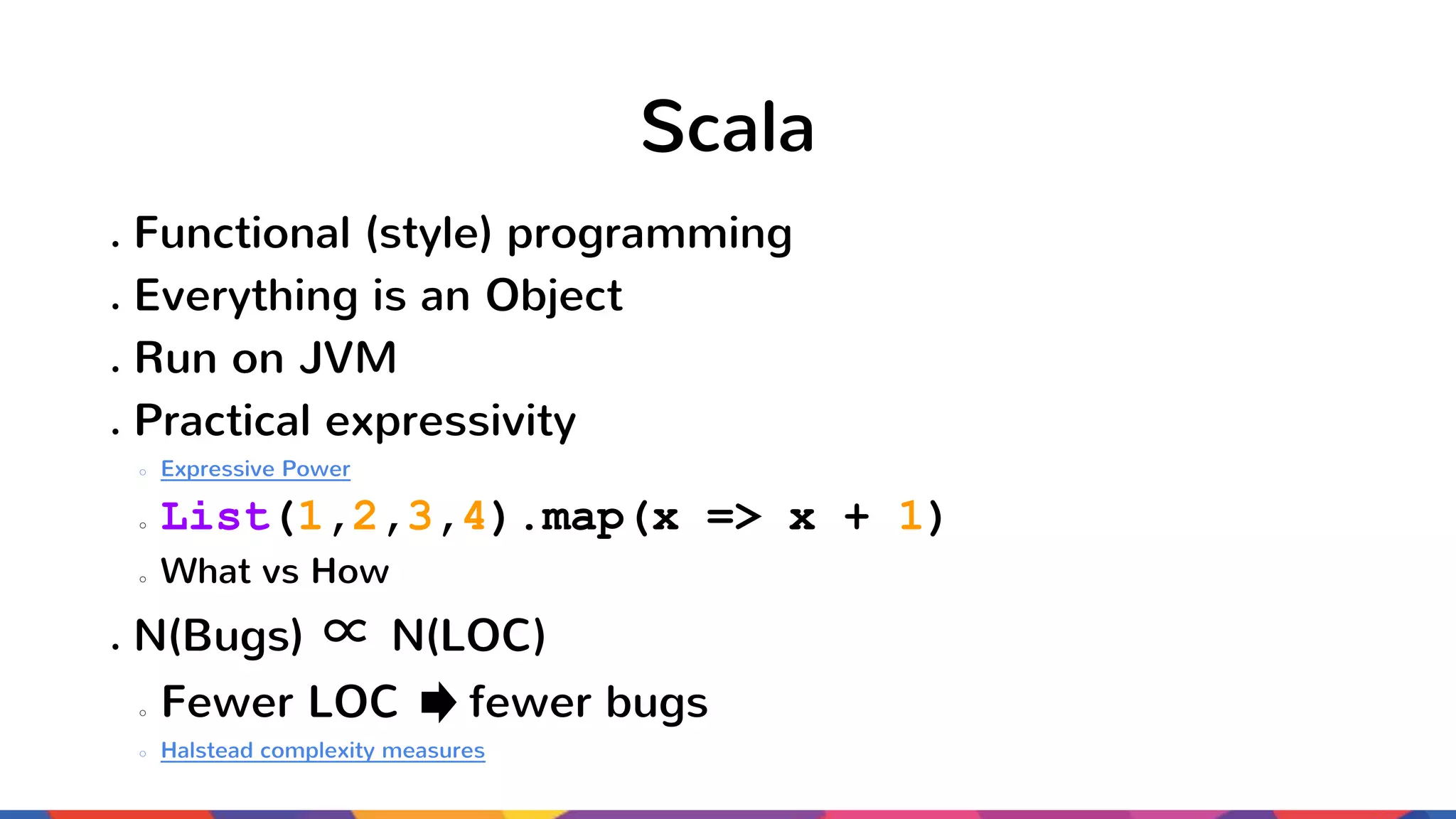
![Scala vs Java ● Every operator is a method call ○ 12 + 4 (12).+(4) ○ “#name” #> “david” ○ “codeWeek” indexOf “w” ● Object Equality ○ List(56,13,75) == List(56,13,75) ● Optional Types ○ NullPointerException ○ val secret: Option[String] = Some(“zbmdfbmknnaprzvds=”) ○ val secret: Option[String] = None](https://image.slidesharecdn.com/codeweek-151015153237-lva1-app6892/75/Reactive-Web-Applications-with-Scala-Liftweb-CodeWeek-2015-15-2048.jpg)
![Scala vs Java ● Immutable data structures scala> val even = List(2,4) scala> 6 :: 8 :: even res0: List[Int] = List(6,8,2,4) ● Type inference scala> Map('a' -> 1, 'b' -> 2) res2: scala.collection.immutable.Map[Char,Int] = Map(a -> 1, b -> 2)](https://image.slidesharecdn.com/codeweek-151015153237-lva1-app6892/75/Reactive-Web-Applications-with-Scala-Liftweb-CodeWeek-2015-16-2048.jpg)
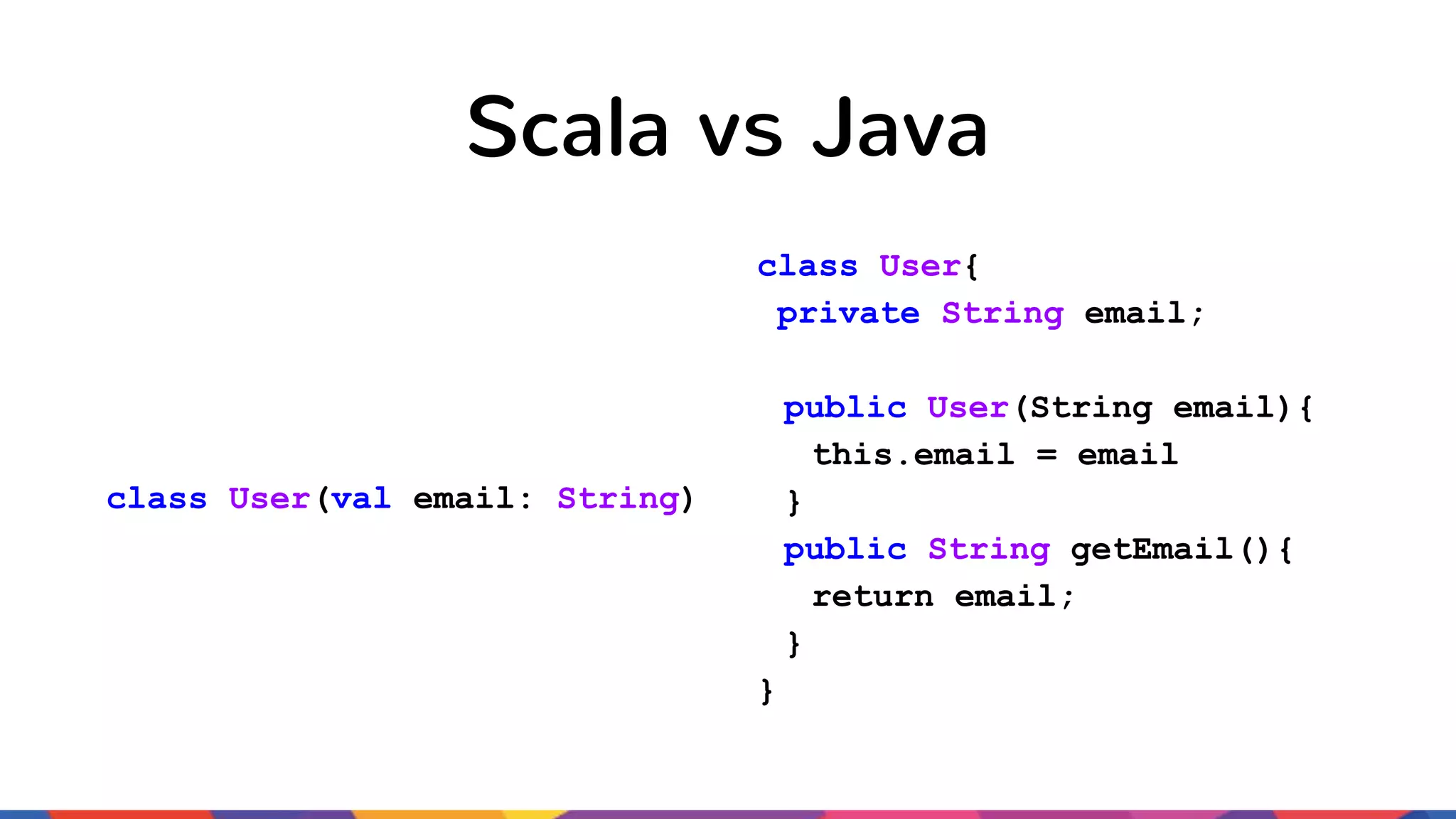
![Scala (1st class) Functions var botMe = (name: String) => “@” + name + ”Bot” botMe: String => String = <function1> val names = “Riccardo” :: “Andrea” :: “Mario” :: Nil names: List[String] = List(Riccardo, Andrea, Mario) names.map(botMe) res0: List[String] = List(@RiccardoBot, @AndreaBot, @MarioBot)](https://image.slidesharecdn.com/codeweek-151015153237-lva1-app6892/75/Reactive-Web-Applications-with-Scala-Liftweb-CodeWeek-2015-18-2048.jpg)
![Objects Everywhere Functions are Objects (x: Int) => x * x * x ..is expanded to.. new Function1[Int, Int] { def apply(x: Int) = x * x * x }](https://image.slidesharecdn.com/codeweek-151015153237-lva1-app6892/75/Reactive-Web-Applications-with-Scala-Liftweb-CodeWeek-2015-19-2048.jpg)
![Objects Everywhere val f = (x: Int) => x * x * x f(2) val f = new Function1[Int, Int] { def apply(x: Int) = x * x * x } f.apply(2)](https://image.slidesharecdn.com/codeweek-151015153237-lva1-app6892/75/Reactive-Web-Applications-with-Scala-Liftweb-CodeWeek-2015-20-2048.jpg)

![Companion Objects • Same name & same source file as the class class User extends MegaProtoUser[User] { def getSingleton = User // reference to the companion object below def allAccounts : List[Account] = Account.findAll(By(Account.owner, this.id)) } // Create a "companion object" to the User class (above). // The companion object is a "singleton" object that shares the same // name as its companion class. object User extends User with MetaMegaProtoUser[User] { override def dbTableName = "users" }](https://image.slidesharecdn.com/codeweek-151015153237-lva1-app6892/75/Reactive-Web-Applications-with-Scala-Liftweb-CodeWeek-2015-22-2048.jpg)
